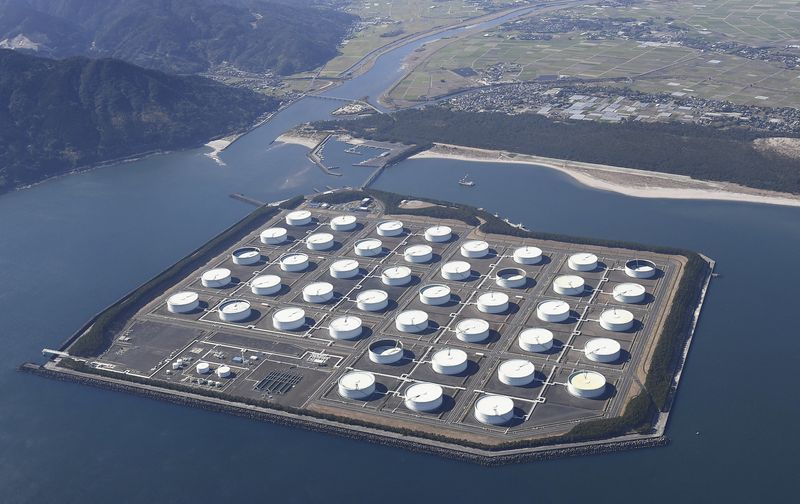By Jessica Resnick-Ault
NEW YORK (Reuters) -Oil prices rose slightly on Thursday on expectations that fuel demand held up despite soaring Omicron coronavirus infections and that OPEC and its allies would continue to increase imports only incrementally.
Gains eased as the world's top importer China cut the first batch of crude import allocations for 2022.
Brent crude futures settled at $79.32 a barrel, up 9 cents, or 0.11%. U.S. crude futures rose 43 cents, or 0.56%, to settle at $76.9 a barrel, the seventh straight session of gains.
"We've had incredibly strong demand numbers through December, so now the question is what OPEC will do," said John Kilduff, a partner at Again Capital Management in New York. Kilduff expects the Organization of the Petroleum Exporting Countries and its allies, known as OPEC+, to continue to add incrementally to production.
China, the world's top crude importer, lowered the first batch of 2022 import quotas to mostly independent refiners by 11%.
"Market sentiment weakened on worries that the Chinese government could take stricter actions against the teapots," a Singapore-based analyst said, referring to the independent refiners.
Still, global oil prices have rebounded by between 50% and 60% in 2021 as fuel demand roared back to near pre-pandemic levels and deep production cuts by OPEC+ for most of the year erased a supply glut.
U.S. Energy Information Administration data on Wednesday showed crude oil inventories fell by 3.6 million barrels in the week to Dec. 24, which was more than analysts polled by Reuters had expected. [EIA/S]
Gasoline and distillate inventories also fell, versus analysts' forecasts for builds, indicating demand remained strong despite record COVID-19 cases in the United States.
Oil prices also drew support from steps taken by governments to limit the impact of record high COVID-19 cases on economic growth, such as easing testing rules.
OPEC+ will meet on Jan. 4 to decide whether to continue increasing output in February.
Saudi Arabia's King Salman said on Wednesday the OPEC+ production agreement was needed for oil market stability and that producers must comply with the pact.

Iraq said it would support sticking to existing OPEC+ policies to raise output by a combined 400,000 bpd in February.
Shell (LON:RDSa) said it had resumed exports of Forcados oil in Nigeria, easing one of three major global outages which also include Ecuador and Libya.